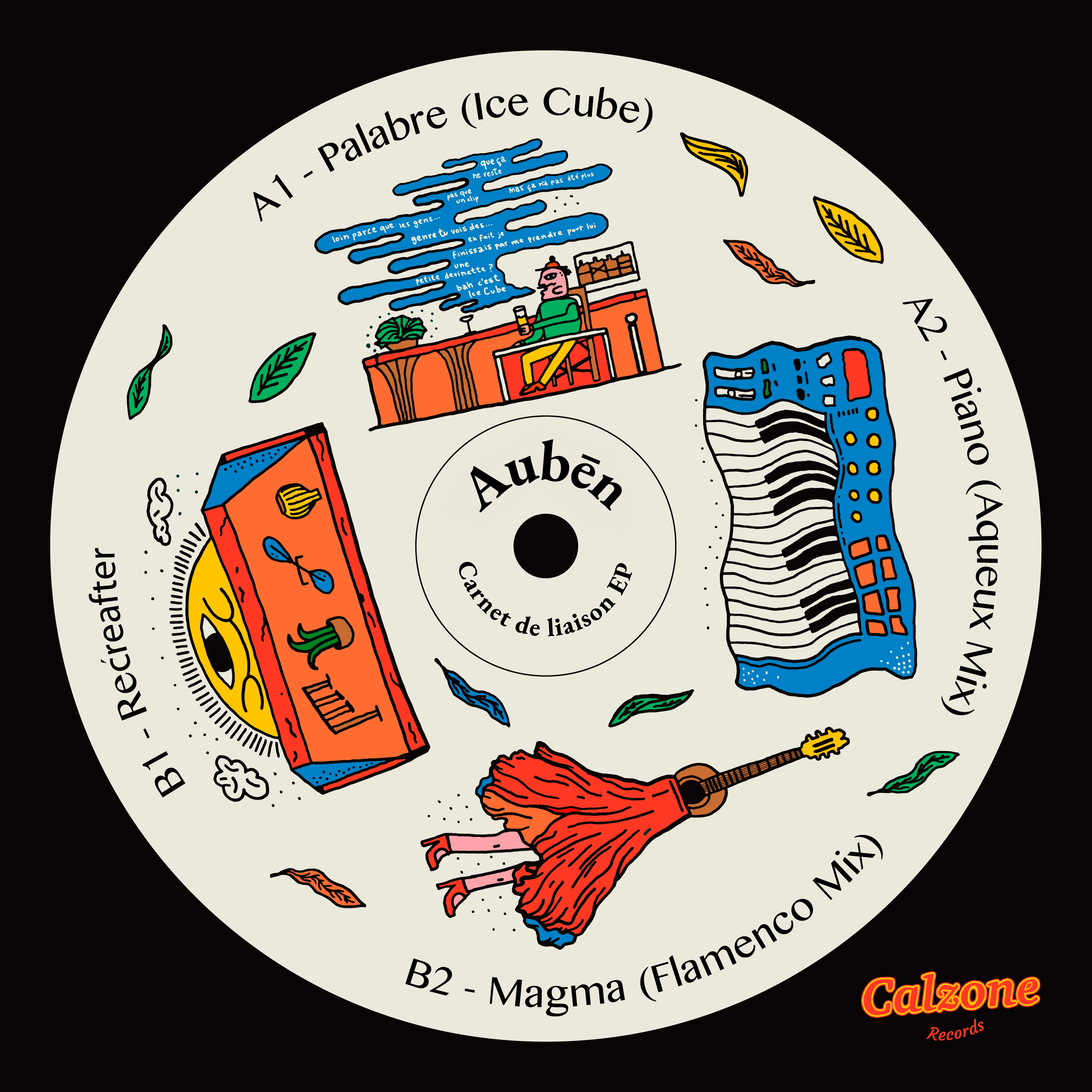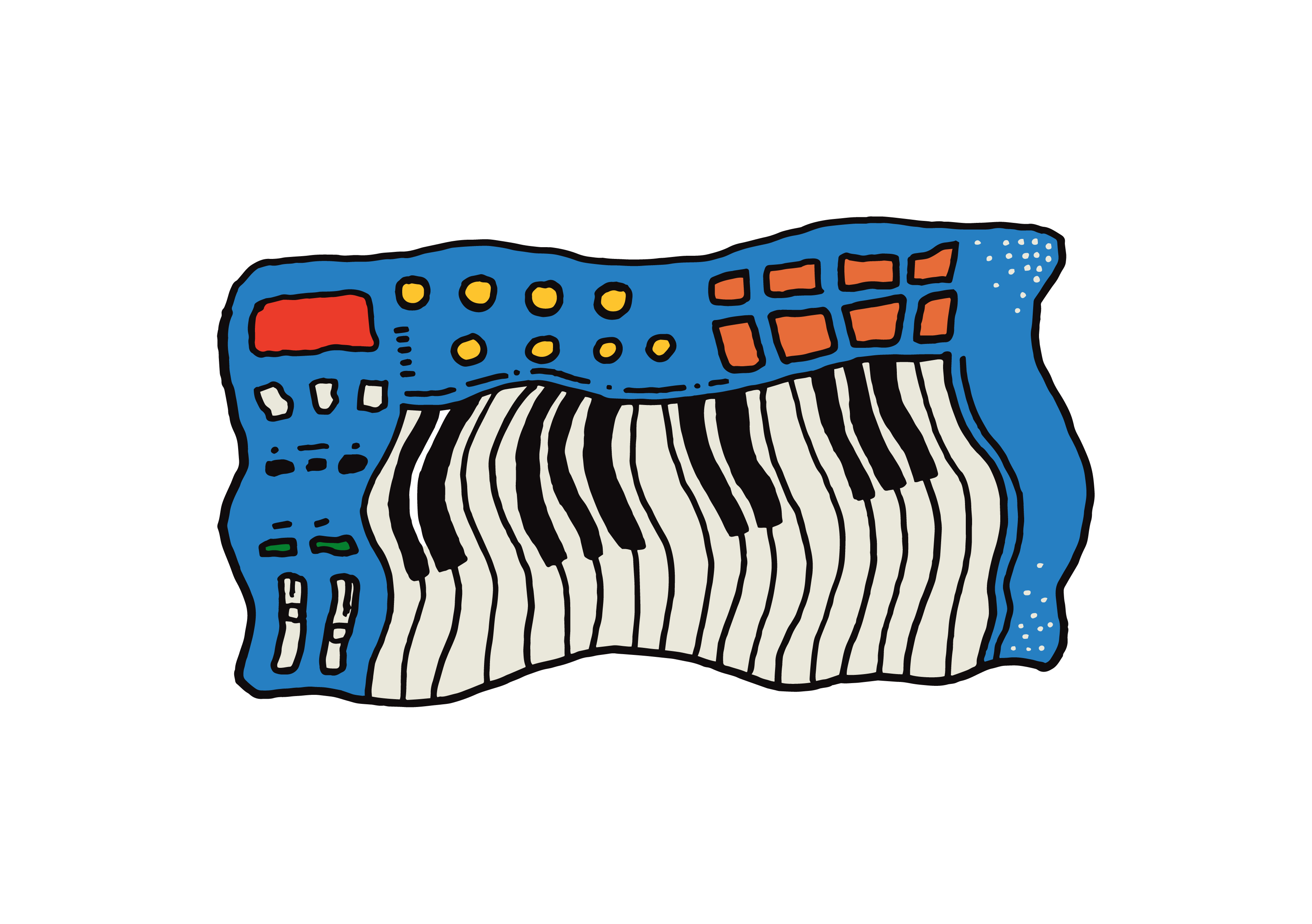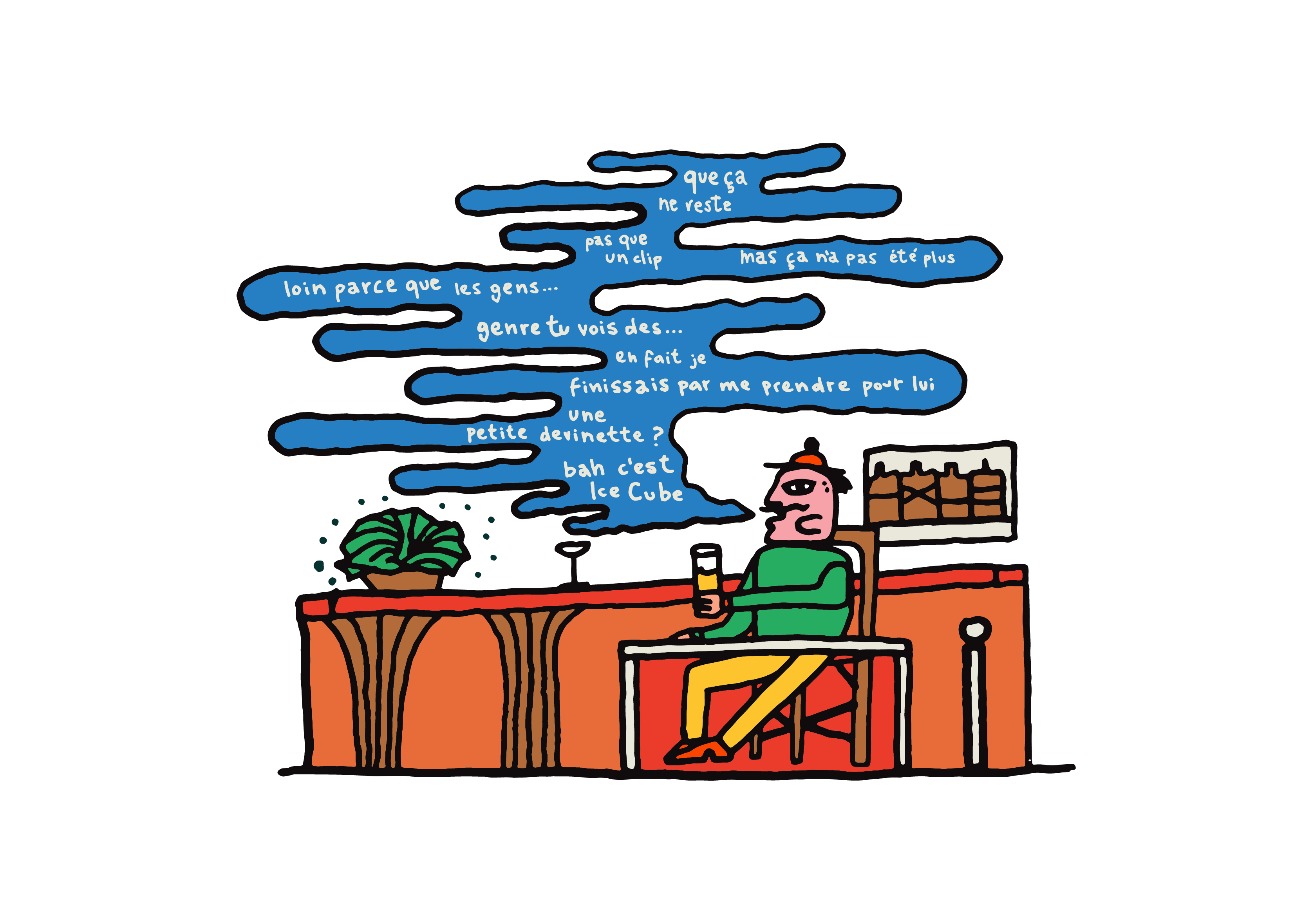A chat with Aubēn from Calzone Records
Aubēn, the artist formerly known as Backhus, has crafted a unique sound blending organic and electronic elements. From his roots in Uruguay to his home in Angoulême, Aubēn’s journey has been marked by collaborations, independent ventures, and a passion for music that pushes boundaries. In this wide-ranging interview, he discusses his artistic evolution, influences, and the experiences that have shaped his career. What’s more, we also touch on his latest record for his fledgling (and absolutely magnificent) Calzone Records…
Can you tell us more about your journey from Uruguay to Angoulême? How did those locations influence your musical style?
My long stay in Uruguay began as a university exchange, but I grew fond of the culture and the relaxed way of life, so I stayed longer than planned. I was already making music as an amateur, and being far from home felt like the right time to pursue it seriously. I took DJing courses from prominent figures like Fernando Picon, and learned production from Juan Cristiani, a producer who taught me everything he knew. After two years, I returned home with a clearer sense of my path: music.
You started your project under the name "Backhus". What inspired the transition to Aubēn, and how does it reflect your artistic evolution?
The change wasn’t planned. I found out another artist had a similar stage name right before releasing my EP. I took it as a sign and a blessing—“une aubaine” in French—to adopt a new name with the release of new music. While the name has changed, I remain the same, more determined than ever to compose original pieces.

As the founder of Calzone Records, what were your main goals in starting an independent label?
I started Calzone Records with my friend Alexis Legendre in 2019 for my first self-release. The idea was to create a platform for local and emerging artists, where we could support one another and move forward together. We promote these artists through releases on the label and events we organise, providing a space for original ideas to flourish.
Your music blends organic and synthetic sounds. What’s your creative process for achieving that balance?
My friend Juan Cristiani inspired me to mix electronic music with organic instruments. He always emphasised, "What’s the story of the song?"—which is now my guiding principle. I usually make demos in my home studio and then collaborate with local musicians to add their touch. I can’t always do this because of the cost, but for bigger projects, it’s my preferred approach.
What can listeners expect from a typical Aubēn DJ set? How do you prepare for your live shows?
I tend not to over-prepare. I know my music collection well and prefer to adapt to the mood of the night, the venue, and the crowd. Reading the crowd and understanding your music is key to being a good DJ. You have to introduce people to new music they didn’t know they liked yet. My sets usually progress from house to more electro or even trance sounds towards the end.

Your music oscillates between club and chill sounds. How do you decide when a track should lean toward high energy or laid-back vibes?
I’m still exploring my sound signature. It all depends on my mood at the time. Some tracks are calmer and more laid-back, while others are edgier and suited for the club. I think it’s important to explore all facets as an artist to develop a personal style.
What was the most memorable event or festival you’ve performed at, and why does it stand out?
Madame Loyal Festival stands out because I shared the stage with icons like Kerri Chandler and Bob Sinclar. The energy from playing in front of so many people was incredible. However, I also love small, intimate venues where I can play longer, more progressive sets.
Who are your biggest musical influences, and how have they shaped your sound?
I listen to a lot of folk, electro-pop, and indie-pop, but recent electronic music from the Chevry Agency crew and artists like Adrien Calvet have influenced me a lot. The French Touch and disco eras also inspired me, although not necessarily in my music-making process.
How do you balance your time between running Calzone Records and your personal music career?
Everything is connected. Calzone helps me develop my personal career through the people I meet and the events I organize. I keep a schedule—working on music in the mornings and handling label and collective activities in the afternoons.

Your latest release on Calzone Records has been gaining attention. Can you tell us about the inspiration behind it and the process of putting it together?
It’s exciting that my EP is gaining attention, especially with the new name change. I started working on it in 2022, and it took two years to complete. The EP reflects an organic vision of electronic music, developed through collaborations with musicians and the careful selection of instruments.
How do you see the evolution of the electronic music scene in France, and where do you feel your music fits within it?
The scene feels faster and more intense, much like the world we’re living in. It seems like people are taking fewer risks compared to groundbreaking eras like the French Touch. Success often depends on marketing and social media presence. As for my music, I don’t want it to fit into a box. I create with my heart, and I hope people will connect with it in the same way.

Finally, if you could collaborate with any artist, past or present, who would it be and why?
I’d love to collaborate with legends like Pink Floyd or Daft Punk, who are geniuses in their craft. I’d also love to work with Ben Harper or Ben Howard—they’ve always been huge inspirations for me.
Keep up with Aubēn on Soundcloud, Instagram and Spotify
Listen to our premiere of Palabre (Ice Cube) here
.svg)
